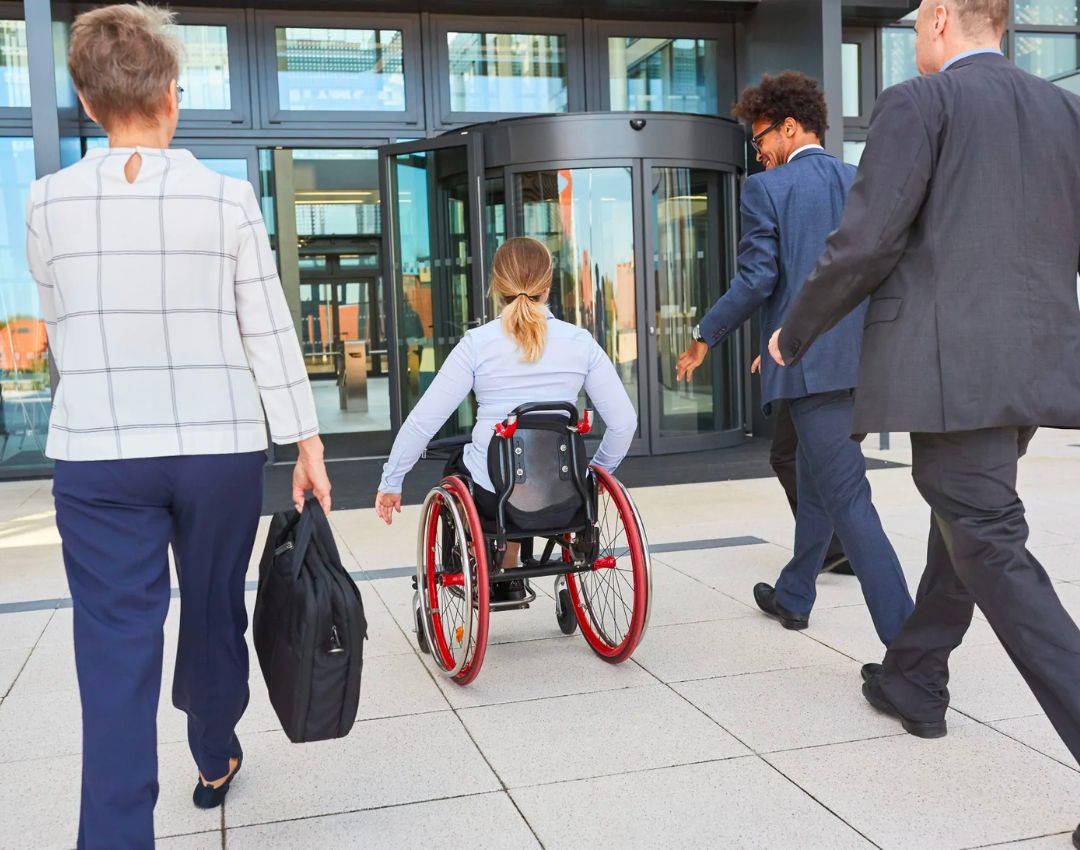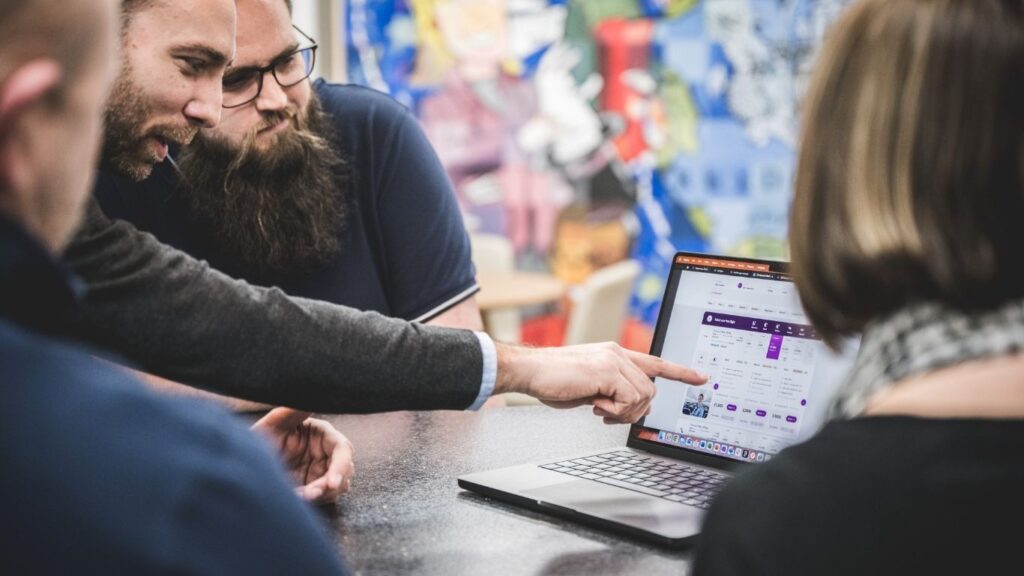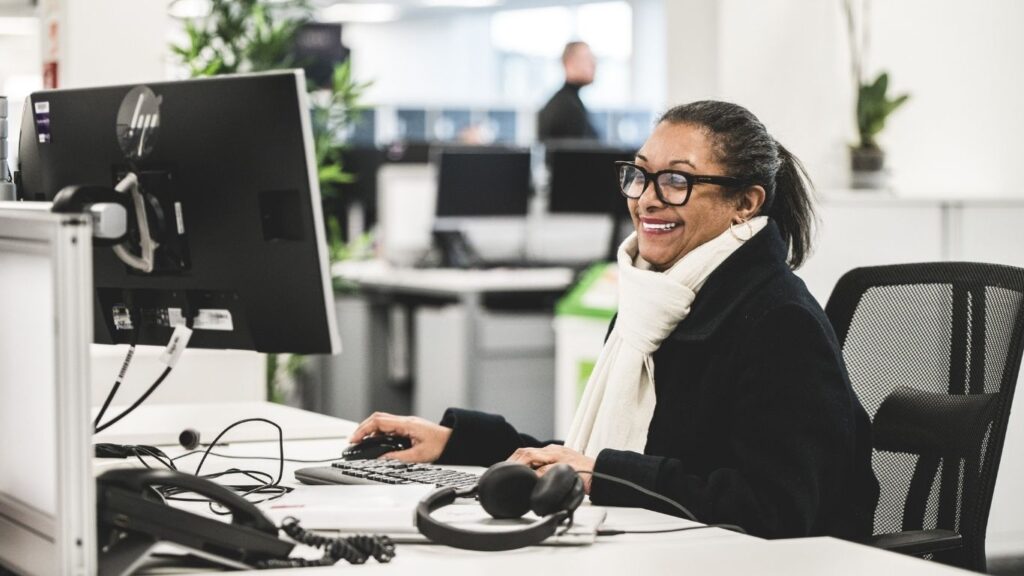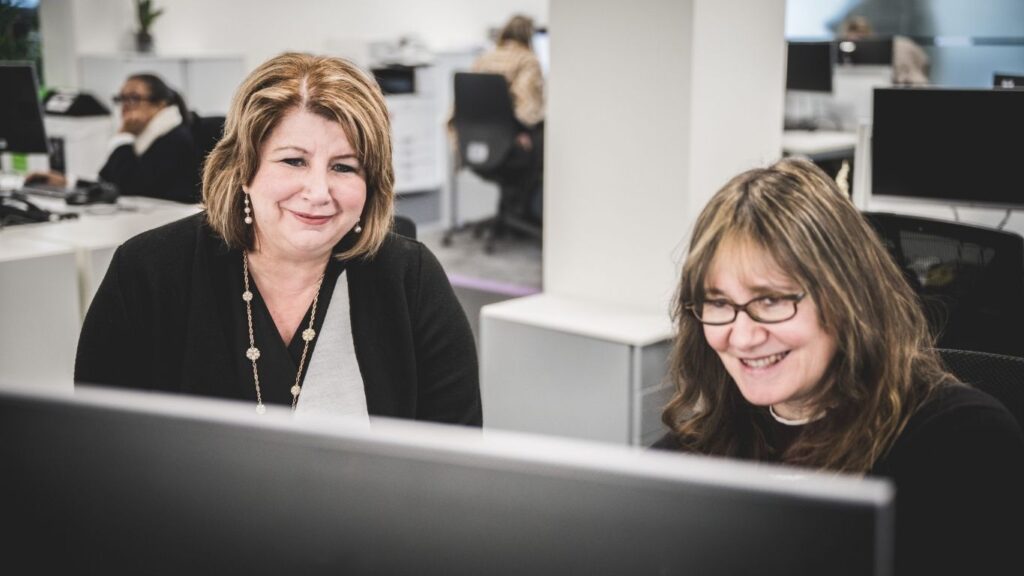In our recent Thought Leadership report, Supporting business travellers with visible and hidden disabilities, one question discussed was whether delegates with disabilities had their needs met while attending meetings and events?
Reed & Mackay’s Meetings & Events team suggests considering these elements to ensure the best experience for all attendees.

How to plan inclusive events
- Awareness is key. Consult communities prior to the event so support is in place without those delegates with disabilities having to ask for it on arrival.
- Ensure the hidden disability lanyard is available at event receptions.
- Consider the marketing material – be careful around language, colour contrasts, font type and size. Indicate on the registration form what you will be offering at the event. This will allow attendees to determine if they require any additional assistance.
- Ensure there are closed caption subtitles and/or sign language interpreters at the event. And, when holding virtual events, captions should be standard.
- Are the stewards at events trained to help anyone wearing a disability lanyard? Have all the people working at the event had neurodiversity training and/or mental health first aid training?
- At busy conferences, offer quiet spaces and noise-cancelling headphones.
- Make sure meeting rooms have Loop systems for people with hearing loss and the option to adjust the lighting.
- Ensure signage is clear with easy-to-see colours and a colour-coded floor plan.
- Have a meet-and-greet person at the door of an event, available to escort them around facilities.
- Use terms such as accessible toilets rather than disabled toilets.
- When venue finding, ensure the space is DDA (Disability Discrimination Act) compliant – giving disabled people a right of ‘access to goods, facilities, services and premises’.

Putting delegate needs first
This is particularly apt as the events industry is expected to experience significant growth from now until 2028 – with a projected compound annual growth rate of nearly 23.1% through 2028.
It is important to anticipate and meet all the needs of event delegates. Reed & Mackay Operations Manager Events UK Gill Newman explains how the team works with suppliers to make sure everything is provided. For example, the team once organised an event where a delegate needed their special bed in the hotel.
“We worked closely with the hotel to ensure it fitted in the lift, doorways and bedroom,” Newman explains. “We ask clients about delegate needs and consider disabilities when choosing a venue or activity. This gives us the best opportunity to have conversations with venues to understand how they’ll support the person upon arrival and throughout their stay.”
Newman says newer properties have generally considered the needs of disabled guests during construction. Bedrooms have hard floors instead of carpet for easier use of walking aids. Reception staff use iPads to assist with check-ins away from the desk. “A more traditional hotel may not be best suited due to the age of the building,” she adds, “so we’d suggest a site visit to give the client reassurance all delegates will be accommodated safely and comfortably.”
The call for consistency from suppliers is clear, with Newman stating this remains one the largest challenges for agencies planning events that include delegates with visible and hidden disabilities. “If all hotels and venues signed to one Disability Charter that included a standard requirement this would help agencies propose meeting space with absolute confidence,” she says.
Mail hello@reedandmackay.com to discuss all of your meetings and events management needs.














